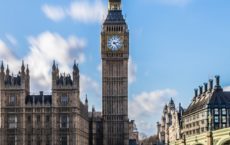After almost two years of painstaking negotiations, one withdrawn vote, one leadership challenge and no fewer than twenty-one government resignations, Parliament has voted overwhelmingly to reject Theresa May’s much-maligned and controversial Brexit deal.
So what on Earth happens now?
The deal was defeated by 432 votes to 202, the largest defeat for a sitting government in modern UK history. A confidence motion designed to trigger a General Election was then tabled by Labour leader Jeremy Corbyn and subsequently defeated by just 19 votes.
So while the government survives another day, it’s now up to them to set out what should happen next – in a brief speech last night Theresa May outlined her intentions to hold cross-party talks with opposition parties including the Lib Dems, Plaid Cymru, the SNP and with the sole Green MP. So far, Labour have ruled out taking part unless the option of ‘No Deal’ is taken off the table. Jeremy Corbyn himself is likely to come under pressure over the coming days to throw his support behind a second referendum or ‘People’s Vote’ on the deal.
One thing is clear however – the clock is still ticking and the economy is looking a bit more uncertain than it did yesterday. The news today that the housing market outlook is the worst for 20 years will be unwelcome for many, as consumers delay house purchases in light of the worsening political situation. It doesn’t take the most astute observer to see that Brexit has almost entirely sucked the life out of government, with the monumental challenge of Brexit leaving little or no bandwidth to deal with many of the pressing challenges facing our country such as the housing crisis.
The phrase ‘nothing has changed’, famously used by Theresa May after her U-turn on social care during the last election, has come to describe the complete political deadlock that has emerged in this country, with deep splits within both main parties, the government and the public at large.
Should Parliament fail to come to a consensus on Brexit soon, either by rejecting a closer relationship with the EU or failing to agree changes to Theresa May’s own deal with the EU, and coupled with the fact that Parliament is likely to try and block 'No Deal', it may be that an election or a referendum emerges as the only way to break the deadlock and get the Brexit process moving again.





